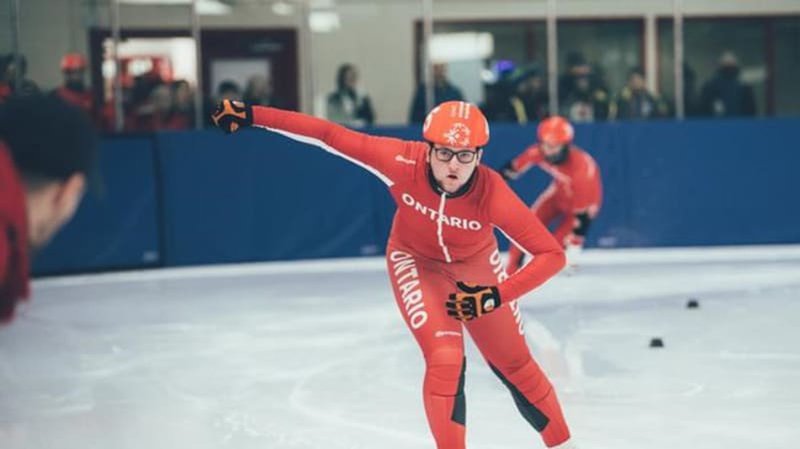
Ontario Speed Skating Association praised by Special Olympics for inclusivity
Jackson Tomlinson was enthralled when Canadian speedskater Charles Hamelin won gold in the men’s 500-metre final and raced over to embrace his then-girlfriend Marianne St-Gelais in one of the most memorable moments of the 2010 Vancouver Olympics.
An excited Tomlinson, then eight years old, turned to his mother Jennifer and said speedskating was the sport he wanted to try next so that he too could become an Olympian.
“I always liked going fast,” said Tomlinson, who joined the Milton (Ont.) Speed Skating Club. “I’m a big fan of NASCAR and this is essentially NASCAR on ice. I’m just glad that I have something to do that I enjoy.
“I’m a teenage boy. We get bored. So I go out and skate.”


